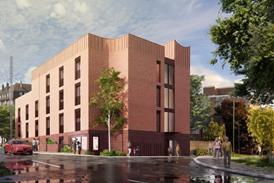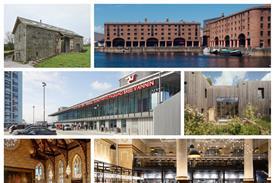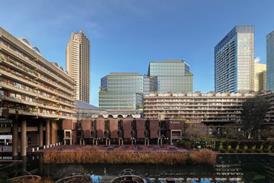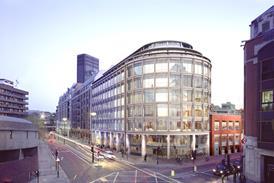Lessons of how to react to upheaval can be gleaned from history, says Eleanor Jolliffe as she launches a new series of columns

I’ve been enjoying the (relative) political calm of the summer parliamentary recess, though bracing myself somewhat before probably one of the most significant shifts in British society in my lifetime. Nobody has any real indication of what the next few months and years will hold – it may all be fine; and it may not. The certainty of the change and the uncertainty of the results has been making me consider the impact Brexit may have on my life – and my work.
Architecture as a profession is fundamentally collaborative, inextricably tied to its patrons and the society from which they spring. As a result, we are directly impacted by societal shifts. In the foreword to Spiro Kostof’s ‘Architect’, Dana Cuff notes that “the architect is substantially governed by the historical conditions of practice. Inspiration and genius, long considered almost supernatural requirements for architectural production, are displaced by social forces like economics and politics.” Cuff may have been writing 19 years ago but her words seem to resonate strongly today, leading me to wonder just how much the architectural profession has been shaped by civilisations’ shifts over time.
According to Kostof, though physical evidence of architects can ”only” be documented as far back as the third millennium BCE the architectural profession, that “specialized skill that is called upon to give shape to the environmental needs of others” can be “postulated … from the moment when there was a desire for a sophisticated built environment”.
In Ancient Egypt, architects were recognised as high government officials watched over by the goddess Seshat, ”lady of builders, of writing and the house of books”. She was occasionally replaced in representations by Thoth, god of science or Ptah, god of crafts – suggesting that even 1,500 years BCE the polymath nature of the architectural profession was integral.
Fast forwarding to Classical Greece, Plato describes architects as contributing ”knowledge not craftsmanship”. However, in Greek legend it is the architect of the Minotaur’s labyrinth, Daedalus, who designed and built the wings that would allow him and his doomed son Icarus to escape Crete.
Across the Ionian Sea in Ancient Rome, Vitruvius was writing his 10 books on architecture just before the advent of the era’s most significant architectural triumphs. The empire’s architects spread an architectural language of power and authority across Europe that still resonates today and institutionalised the architectural profession as an intellectual pursuit substantiated by a liberal education.
At the fall of Rome, as Western Europe rejected its imperial masters, the understanding of the profession shifted from intellectual pursuit to a practical skill that could be learned within the restricted compass of apprenticeship. This supplanted the architect of the classical understanding with the idea of architect as master builder.
Hereon in the profession as we know it today begins to emerge through the artisans and scholars of 15th-century Italy, the Royal Building Administration of 14th to 16th-century France, and under the patronage of the ruling post-reformation families of England. Indeed, Sir John Summerson declared in the sketches of Inigo Jones in 1605 “a revolution in architectural vision … we have finally crossed the threshold from the medieval to the modern”.
Though a swift summary of highlights a nexus at the intersection of science, craft and technological advancement clearly weaves through millennia of a collaborative and reactive profession. The profession has reacted to history for the past 5,000 years and is likely to continue to react and evolve for the next 5,000.
In anticipation of an uncertain future context I would like to better understand how it has reacted, specifically in more recent history. Philosopher George Santayana has been endlessly quoted and misquoted in his statement that “those who cannot remember the past are condemned to repeat it”. It may be that we are condemned to repeat the past anyway, but I have always tended towards the belief that forewarned is forearmed.
BD have kindly allowed me to adjust the format of my columns for the next few months to briefly consider how events in recent history have changed the profession. I may look at protection of title, women entering the profession, Thatcher, D&B procurement or even entering the EU! (Suggestions in the comments are welcome.) As I am a rather new architect, and wasn’t alive for most of the above, I will likely pester those I know with a little more experience for their remembrances to add to what I can discover.
I hope you enjoy the next few months and that if nothing else is gained that you will enjoy the opportunity to reflect on, and to celebrate the adaptability and breadth of experience that our profession represents.
















11 Readers' comments